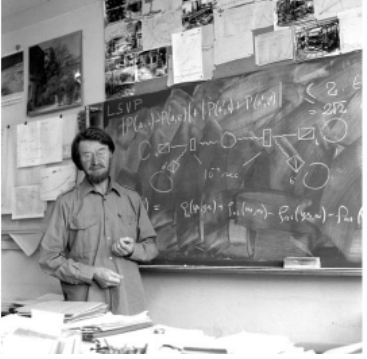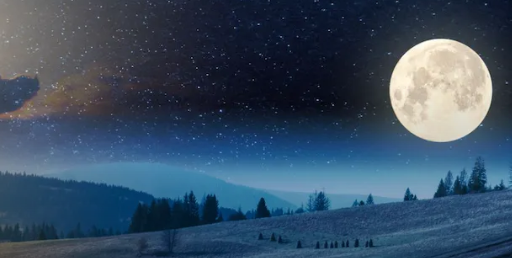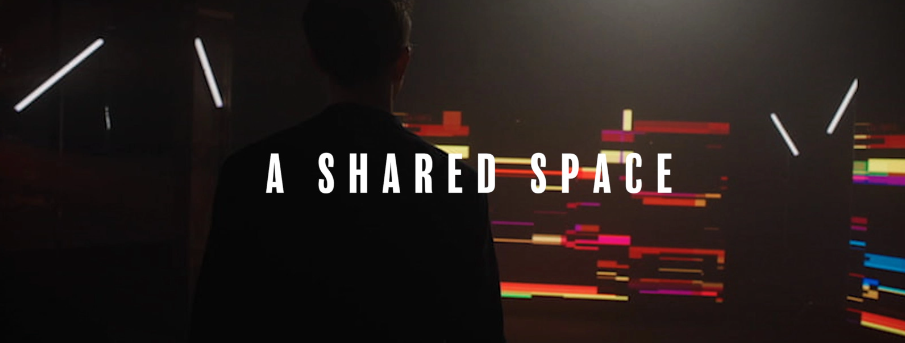Greetings, WesleyNexus Colleagues:
During the week of October 3, 2022, the Nobel Prize was awarded for contributions in science in the fields of physics, chemistry and medicine. This month, WesleyNexus celebrates the accomplishments of these award winners as well as those recipients from prior years. In particular, we note that Dr. William Phillips, Nobel Prize winner for physics in 1997, will be the guest speaker for the Kent Weaver Lecture on October 29, 2022. Dr. William Phillips has worked for decades at the National Institutes of Standards and Technology (NIST) in Montgomery County, Maryland and is also an active member in a United Methodist congregation. An engaging speaker able to communicate with people from all backgrounds and age groups, Dr. Phillips represents how one can be both a person of science and a person of faith. We have included an interview from 2019 for those who are not able to attend his talk in person. We hope you are able to attend the lecture on the 29th and, if unable, take the time to view the interview. It is worth the time.
Contents:
First Annual Kent Weaver Lecture – October 29, 2022 – Dr. William D. Phillips, Nobel Laureate
IRAS Webinar: Reclaiming the comparative perspective: the fecund ironies of perspectivalism” with Dr. Tinu Ruparell
Video: William D. Phillips, Nobel Prize in Physics 1997 – Interviewed in 2008
Ecotheology, or Why Climate Crisis and Eco-Anxiety Require a Radically Different Kind of Theology with Philip Clayton
The Nobel Prize in Physics 2022
The Nobel Prize in Chemistry 2022
The Nobel Prize in Physiology or Medicine 2022
How philosophy turned into physics and reality turned into information (Physics.org)
‘Monumental’ Math Proof Solves Triple Bubble Problem and More by Erica Klarreich
Biological Clocks and God’s Good Creation by Julie Reynolds
The Shared Space – Embracing Religious Plurality by James Walters (Video)
“Messenger” by Mary Oliver
Thanks continue to go out to our generous contributors. We encourage you to share comments, articles and insights that will help us all weather these difficult times.
Blessings,
Rick Barr and the rest of the WesleyNexus team
****************************************************************************************************
First Annual Kent Weaver Lecture – October 29, 2022 – Dr. William D. Phillips, Nobel Laureate
Kent Weaver was born to a Methodist couple, baptized as an infant at Metropolitan Memorial Methodist Church in Washington DC, participated in Methodist Youth programs, enrolled and graduated from a Methodist College, and served as a leader in virtually every capacity for some forty years in his Methodist congregations in the BWCUMC. Moreover, he served as Treasurer of the Wesley Nexus organization since its incorporation until his death in May 2020. In his honor, the WesleyNexus board collaborated with the congregation at National United Methodist Church to establish an annual lectureship to perpetuate his commitments. Then the pandemic hit and everything closed down for more than a year. But now, on October 29, 2022, the first annual lecture in Science and Religion will he hosted at Metropolitan United Methodist Church, 3401 Nebraska Avenue=, NW, Washington DC, across the road from The American University. The event, October 29, a Saturday afternoon, begins with a reception at 4:30 pm, the lecture begins at 5:00 followed by a Q & A period, and comes to a close at 6:30 so that persons with Saturday evening commitments can keep them.
The lecture by Dr. William D. Phillips, Nobel Laureate in Physics and a long time director at the National Institute on Standards and Technology, will be open to all and is meant for an inquisitive lay audience. Dress will be summer casual, and pre-registration will be appreciated but not required. The event will not be live streamed. The event will be free with donations voluntary.
Pre-registration is requested (register online here). You may also copy information found here and email the filled out form to WesleyNexusNewsletter@gmail.com or print the online .pdf form and mailing it to the address provided.
****************************************************************************************************
Discovery and Faith
https :// www.discoveryandfaith.org/
****************************************************************************************************
The Institute on Religion in an Age of Science (IRAS)
IRAS is an international society of learners and thinkers, natural and social scientists, philosophers, theologians and people from many other backgrounds and professions. IRAS cultivates a community of informed and respectful inquiry and dialogue at the intersections of science with religion, spirituality and philosophy in service of global, societal and personal well-being.
IRAS Webinar Series
For 65 years, The Institute on Religion in an Age of Science (IRAS) has held summer Conferences on Star Island, off the coast of Portsmouth, New Hampshire. Due to the pandemic, we had to postpone our 2020 Star Island conference until the summer of 2021. In order to continue to engage with IRAS themes and the IRAS community, with Star Island’s generous support, we launched a live webinar series: Science, Religion, & Society.
https://www.iras.org/webinar-series.html
IRAS October Webinar:
Reclaiming the comparative perspective: the fecund ironies of perspectivalism”
With Dr. Tinu Ruparell, associate professor in comparative religion at the University of Calgary
October 12, 2022, at 4:00 pm Central time, 5:00 Eastern time
Presentation Overview:
Given the hybridity characteristic of all people, both biologically/genetically, as well as – increasingly – culturally and (crucially) in terms of our identities, how are the liminal, interstitial perspectives we inhabit related to questions of truth and ethics? Do our complex, narrative, and socially negotiated identities so problematise our ability to clarify questions of truth and morality that we are left flailing in the dark in the face of a fractured, post-truth society? Far from arguing either for a ‘view from nowhere,’ nor the deracinated capitulation characteristic of the so-called ‘spiritual but not religious’, in this presentation I propose a version of perspectivalism built on the paraconsistent logic of the Jaina doctrine of ‘anekantavada’ (no one view), and the mature, ironic pragmatism of Richard Rorty. In this context, I argue that religion as asocial technology may reveal rich and fruitful forms of life responsive to our current aporia.
Presentation Background:
Dr. Tinu Ruparell is an associate professor in the comparative philosophy of religion at the University of Calgary. After his first degree in microbiology and graduate research in physiology, he moved to philosophy, eventually earning his doctorate in cross-cultural hermeneutics. Philosophizing across boundaries remains a focus of his research, be that boundaries between scientific and religious cultures, or between European and Indian traditions. Before coming to the University of Calgary, he taught at Liverpool Hope University, where he was inaugural co-chair of their Centre for the Study of Science and Religion, and the University of Cambridge. He publishes in the areas of comparative and interreligious philosophy, Indian philosophy, and medical humanities.
The IRAS webinar is FREE, but registration is required:
https://us02web.zoom.us/webinar/register/WN_oEY8xIOSQZCNCFxQtY7Pug
****************************************************************************************************
Video: William D. Phillips, Nobel Prize in Physics 1997 – Interviewed in 2008

Interview with the 1997 Nobel Laureate in Physics, William D. Phillips, at the 58th Meeting of Nobel Laureates in Lindau, Germany, 2 July 2008. The interviewer is Adam Smith, Editor-in-Chief of Nobelprize.org.
William Phillips discusses how his home life helped develop his early interest in science, the cultural differences he has observed in the way physicists approach problems (5:03), his incredibly precise thesis and how it helped establish the value of the fine structure constant (8:05), his move from MIT to the National Bureau of Standards (14:09), the work for which he was awarded the Nobel Prize (20:32), the application of laser cooling to atomic clocks (27:55), the inquisitiveness he looks for in a student (33:14), and how his faith is connected to his work (40:27).
http ://www.youtube.com/watch?v=MFphKDuR0eE
****************************************************************************************************
Ecotheology, or Why Climate Crisis and Eco-Anxiety Require a Radically Different Kind of Theology
November 10 @ 7:00 pm – 8:30 pm
The Institute for Religion and Science, A Regional Center Exploring Science and Spirituality
****************************************************************************************************
Nobel Prizes:

The Nobel Prize in Physics 2022
Alain Aspect, John Clauser and Anton Zeilinger have each conducted groundbreaking experiments using entangled quantum states, where two particles behave like a single unit even when they are separated. Their results have cleared the way for new technology based upon quantum information.
https://www.nobelprize.org/prizes/physics/2022/press-release/
The Nobel Prize in Chemistry 2022
The Nobel Prize in Chemistry 2022 is about making difficult processes easier. Barry Sharpless and Morten Meldal have laid the foundation for a functional form of chemistry – click chemistry – in which molecular building blocks snap together quickly and efficiently. Carolyn Bertozzi has taken click chemistry to a new dimension and started utilizing it in living organisms.
https://www.nobelprize.org/prizes/chemistry/2022/press-release/
The Nobel Prize in Physiology or Medicine 2022
Humanity has always been intrigued by its origins. Where do we come from, and how are we related to those who came before us? What makes us, Homo sapiens, different from other hominins?
https://www.nobelprize.org/prizes/medicine/2022/press-release/
****************************************************************************************************
How philosophy turned into physics and reality turned into information (Physics.org)

The Nobel Prize in physics this year has been awarded “for experiments with entangled photons, establishing the violation of Bell inequalities and pioneering quantum information science.” To understand what this means, and why this work is important, we need to understand how these experiments settled a long-running debate among physicists. And a key player in that debate was an Irish physicist named John Bell.
****************************************************************************************************
Top scientists urge retraction of paper denying evidence of climate change

In strong terms, top climate change scientists have urged the publisher, Springer Nature, to withdraw the publication, calling it “fundamentally flawed” and claiming that the authors “simply ignored studies that don’t fit their narrative.” The paper was published in January of 2022 in The European Physics Journal Plus and draws the conclusion that observational climate data do not evidence the current climate crisis. Climate scientists who were interviewed for the news article cited above, accused the authors of the disputed paper of “grossly manipulating the data, cherry picking some facts and ignoring others that would contradict their discredited assumptions.” Another expert went so far as to describe the authors as having written their article “in bad faith.” As of 30 September 2022, the publisher added an alert to readers on their website that the conclusions of the paper are under dispute.
https://phys.org/news/2022-09-scientists-urge-publisher-faulty-climate.amp
****************************************************************************************************
‘Monumental’ Math Proof Solves Triple Bubble Problem and More by Erica Klarreich

****************************************************************************************************
Biological Clocks and God’s Good Creation by Julie Reynolds

For everything there is a season and an internal clock (or two) to keep track of them. Biological clocks can be found in bacteria, insects, birds and even humans.
https://biologos.org/post/biological-clocks-and-gods-good-creation
****************************************************************************************************
The Shared Space – Embracing Religious Plurality by James Walters (Video)

In the West we’ve come to view religion as either irrelevant or detrimental to how we tackle the global challenges of our age – but what if the opposite were true?
We live in times where we are overwhelmed by information, emotion, and complexity – with the technologies meant to connect us leaving us feeling disconnected, anxious and divided.
In this fragmented world, ancient religious traditions re-emerge and intersect with modernity; faiths may anchor people amidst their uncertainties, but they can also reignite combative, tribal instincts.
But what if, instead of seeing religious differences as an obstacle to tackling the collective challenges our world faces, we saw them as a vehicle for exploring shared solutions? What if the question of how we live together as a world of different religious traditions is central to forging the world we want to build?
Https://templetonreligiontrust.org/explore/the-shared-space-embracing-religious-plurality/?fbclid=IwAR0IZKquZVvmz35odnrV7HySvkW3Vpcd1hpWB-kpUxtzaTAth5SsodkCSP8
****************************************************************************************************
“Messenger” by Mary Oliver
My work is loving the world.
Here the sunflowers, there the hummingbird—
equal seekers of sweetness.
Here the quickening yeast; there the blue plums.
Here the clam deep in the speckled sand.
Are my boots old? Is my coat torn?
Am I no longer young, and still half-perfect? Let me
keep my mind on what matters,
which is my work,
which is mostly standing still and learning to be
astonished.
The phoebe, the delphinium.
The sheep in the pasture, and the pasture.
Which is mostly rejoicing, since all the ingredients are here,
which is gratitude, to be given a mind and a heart
and these body-clothes,
a mouth with which to give shouts of joy
to the moth and the wren, to the sleepy dug-up clam,
telling them all, over and over, how it is
that we live forever.
Thanks to Steven Tuell for sharing this on Facebook
